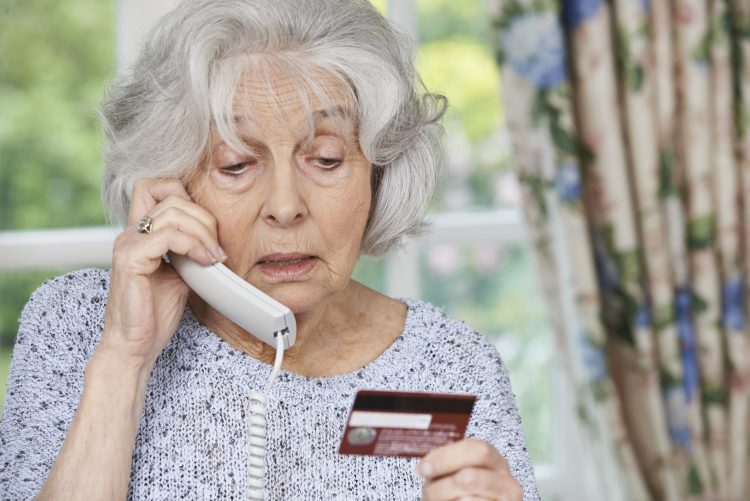 Source: iStock.com/Highwaystarz-Photography
Source: iStock.com/Highwaystarz-Photography
The most common Telephone Scams and Frauds and how to protect oneself
30. January 2020 Published by Raphael DoerrTelephone fraud – one of the nastiest trick fraud tricks hits older people in particular, by shamelessly exploiting the good faith and social awareness of this group of people. We provide information about the most common forms of fraud and give advice on self-protection.
One of us may hardly believe it, but telephone fraud causes annual damage of around 28 billion euros worldwide, according to a study by Securitas on this subject. The tricks of the scammers are as diverse as you can hardly imagine. A call from the prosecutor? A profit announcement on the phone? With ever new tricks, fraudsters try to get the money from unsuspecting people.
The most common Scams
Alleged profits
Callers pretend to be notaries or profit representatives who promise the called parties great profits. Often, however, those affected should first transfer money, usually to an account abroad, in order to retrieve the profit.
You should therefore always have alleged profits confirmed in writing. Never give out sensitive data, such as your address, unchecked on the phone. If in doubt, end the call and never transfer money.
Fraudulent customer service
Employees from major, well-known computer companies call you. The offer: to remotely clean your home computer from viruses and Trojans. Not only several hundred euros are due for such a dubious customer service assignment. The remote maintenance system also gives fraudsters full access to your sensitive, private data.
Do not let yourself be put under pressure and do not act too hastily. Be skeptical about unknown callers. If in doubt, end the call. Contact the official customer service of your product yourself.
Wrong contracts
In the case of a serious-sounding phone call, the caller pretends to deliver an important message. The real shock comes much later. The called parties have allegedly concluded expensive contracts or are supposed to transfer several thousand euros without ever receiving anything in return. The problem: the lies are told in a completely credible manner. Everyone can become a victim.
You can defend yourself against supposedly concluded or fraudulent contracts with a sample letter from the consumer advice center.
Grandchildren Trick and fake Police Officers
The tricksters call the elderly on the pretext of being relatives (mostly grandchildren or nephews) or good acquaintances: “Guess who’s on the phone?” Then they pretend to be a financial bottleneck and ask for large amounts of cash because they are responsible for the money need an emergency immediately. With several phone calls in a short time, the perpetrators increase the psychological pressure on the seniors, combined with appeals such as: “Please help me!” The fraudsters ask for absolute secrecy towards family and friends. Because they are said to be unable to come themselves, they agree on a password with the elderly, which a friend or acquaintance will call when they pick up the money as a messenger. In numerous cases, the elderly victims have withdrawn large amounts of money from their accounts after such talks to help the supposed grandson.
Tips from the police against grandchildren’s trick
- Be careful when someone asks you for money over the phone.
- Simply hang up the phone as soon as the other party, often a supposed grandson, asks you for money.
- Make sure that the caller is really a relative. Call him back.
- Never give money to unknown people.
- Inform the police immediately if you suspect a call: emergency number 110!
- Be sure to contact the police if you are a victim and file a complaint.
- The officers of your local police, who are specially trained in victim protection, will be happy to help with any questions.
The fraudsters pretend to be police officers to make their story appear credible. They often call the elderly and manipulate their victims over hours of phone calls. They try to win the trust of the victims with convincing stories. Allegedly, a break-in into the apartment or house is imminent or the police have found illegal money in their accounts. In all cases, the perpetrators massively ask the victims to hand over valuables and cash to a “colleague” for their own protection. In order not to endanger the investigation, the victim should not talk to anyone about the incident. With skillful conversation, the perpetrators convince the victims to bring all of their cash assets and sometimes even the contents of safe deposit boxes home to be handed over to a supposed police officer.
Police tips against wrong fake police officers
- Get the name, hang up, call your local police department on 110, and describe the situation.
- Do not give unknown persons information about your financial situation or other sensitive data.
- Do not open the door to unknown people.
- Consult a confidant.
- Never give money or valuables to unknown persons, alleged police officers, public prosecutors, courts or financial institutions.
- If you are the victim of such a call, be sure to contact the police and file a complaint.
- Technical protective measures
If you don’t want to get into the situation of falling victim to a fraudulent scam, the new Gigaset CL690A SCB can help. You can find all the information here.
 Comments
Comments

 en
en 







